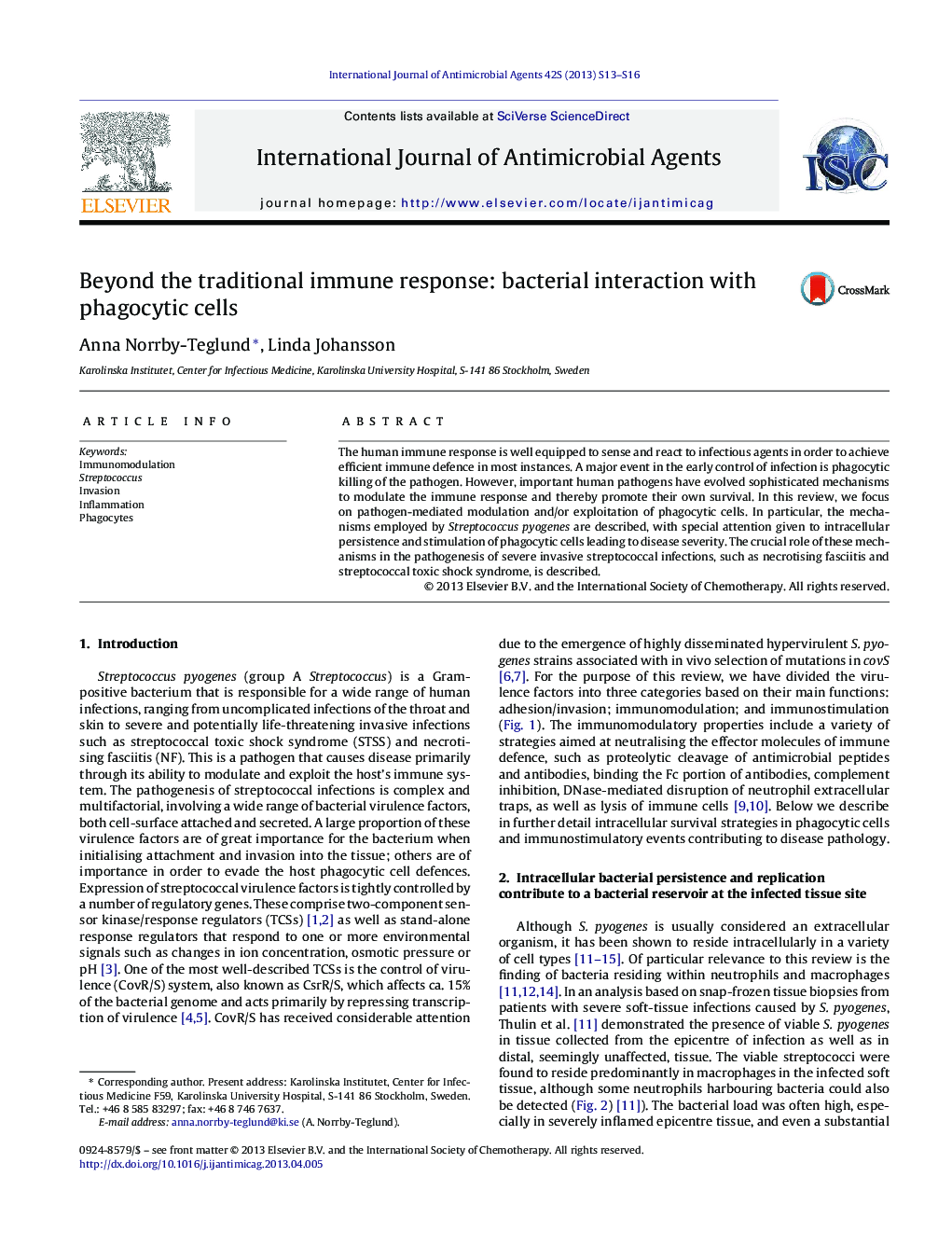| Article ID | Journal | Published Year | Pages | File Type |
|---|---|---|---|---|
| 3359198 | International Journal of Antimicrobial Agents | 2013 | 4 Pages |
The human immune response is well equipped to sense and react to infectious agents in order to achieve efficient immune defence in most instances. A major event in the early control of infection is phagocytic killing of the pathogen. However, important human pathogens have evolved sophisticated mechanisms to modulate the immune response and thereby promote their own survival. In this review, we focus on pathogen-mediated modulation and/or exploitation of phagocytic cells. In particular, the mechanisms employed by Streptococcus pyogenes are described, with special attention given to intracellular persistence and stimulation of phagocytic cells leading to disease severity. The crucial role of these mechanisms in the pathogenesis of severe invasive streptococcal infections, such as necrotising fasciitis and streptococcal toxic shock syndrome, is described.
